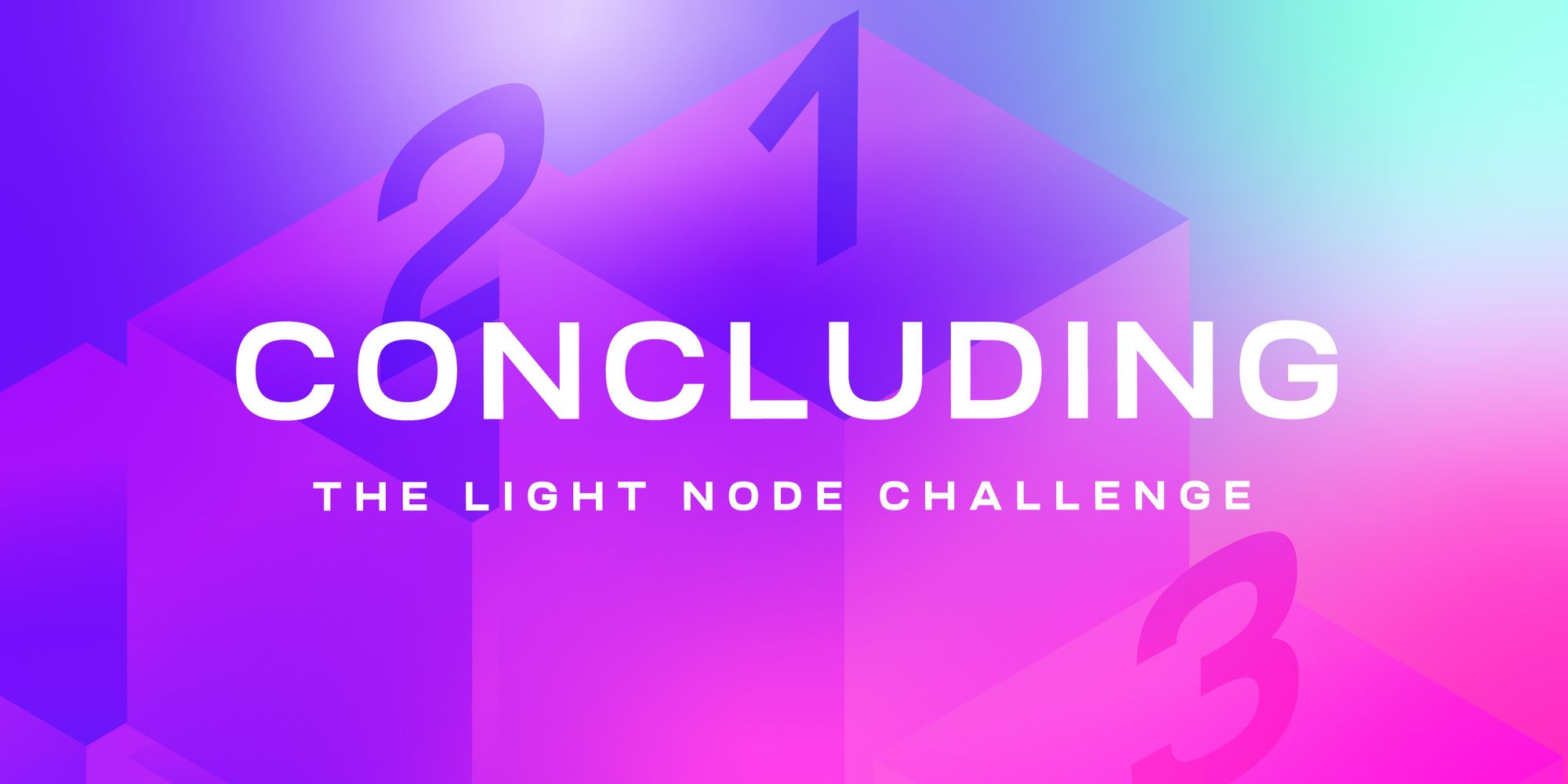Oliver Velez running a node has become a prominent topic in the blockchain and cryptocurrency community. As more individuals seek to understand the intricacies of blockchain technology, Oliver Velez has emerged as a key figure advocating for decentralization through node operations. This article aims to provide a detailed exploration of running a node, its importance, and how Oliver Velez contributes to this growing field.
In recent years, blockchain technology has gained significant traction, with nodes playing a crucial role in maintaining the integrity and security of decentralized networks. Running a node is not just a technical endeavor; it is a commitment to supporting a transparent and censorship-resistant system. Oliver Velez, with his extensive knowledge and expertise, has been instrumental in educating the public about the importance of nodes in blockchain networks.
This article will delve into the technical aspects of running a node, the benefits it offers, and how individuals like Oliver Velez are driving the adoption of blockchain technology. Whether you are a beginner or an experienced enthusiast, this guide will equip you with the necessary information to understand and participate in the world of blockchain nodes.
Read also:Unveiling The Mystery Of Fc2 4563890 A Comprehensive Guide
Table of Contents
- Introduction to Oliver Velez Running a Node
- Biography of Oliver Velez
- Understanding the Basics of a Node
- Types of Nodes in Blockchain
- The Process of Setting Up a Node
- Benefits of Running a Node
- Challenges in Running a Node
- Building a Community Around Nodes
- The Future of Nodes in Blockchain
- Conclusion and Call to Action
Introduction to Oliver Velez Running a Node
Who is Oliver Velez?
Oliver Velez is a prominent figure in the blockchain and cryptocurrency space, known for his dedication to promoting decentralization and transparency. With years of experience in the industry, he has become a respected voice advocating for the adoption of blockchain technology. One of his key focuses is on running nodes, which are critical components of blockchain networks.
Running a node involves maintaining a copy of the blockchain ledger and validating transactions. This process ensures the integrity and security of the network, making it an essential activity for anyone interested in blockchain technology. Oliver Velez has been instrumental in educating the public about the importance of nodes and encouraging more individuals to participate in this vital aspect of blockchain infrastructure.
Biography of Oliver Velez
Early Life and Career
Oliver Velez was born and raised in a tech-savvy environment, which sparked his interest in technology from a young age. After completing his education in computer science, he embarked on a career in software development, where he honed his skills in programming and system architecture.
As the blockchain industry began to emerge, Oliver quickly recognized its potential to revolutionize various sectors. He transitioned into the blockchain space, focusing on developing solutions that promote decentralization and transparency.
Biodata
| Full Name | Oliver Velez |
|---|---|
| Profession | Blockchain Advocate and Developer |
| Expertise | Node Operations, Blockchain Technology |
| Notable Contributions | Advancing Node Education and Decentralization |
Understanding the Basics of a Node
What is a Node?
A node in blockchain terminology refers to a computer connected to a blockchain network. Each node maintains a copy of the blockchain ledger and participates in validating transactions. Nodes are essential for ensuring the security and reliability of the network, as they collectively agree on the state of the ledger through consensus mechanisms.
There are different types of nodes, each serving specific functions within the network. Understanding these roles is crucial for anyone looking to run a node or contribute to blockchain development.
Read also:Naked Car Wash The Ultimate Guide To Understanding And Exploring The Trend
Types of Nodes in Blockchain
Full Nodes
Full nodes are the backbone of any blockchain network. They store a complete copy of the blockchain ledger and validate transactions independently. By doing so, full nodes ensure the integrity of the network and prevent malicious activities.
Lightweight Nodes
Lightweight nodes, also known as SPV (Simplified Payment Verification) nodes, do not store the entire blockchain ledger. Instead, they rely on full nodes to verify transactions. This makes them suitable for devices with limited storage capacity, such as smartphones.
Master Nodes
Master nodes are specialized nodes that provide additional functionalities beyond transaction validation. They often participate in governance and voting processes, making them critical for certain blockchain networks like Dash.
The Process of Setting Up a Node
Step-by-Step Guide
Setting up a node involves several steps, from choosing the right hardware to configuring the software. Below is a simplified guide to help you get started:
- Select Hardware: Ensure your computer meets the minimum requirements for running a node.
- Install Software: Download and install the official client software for the blockchain network you wish to participate in.
- Sync Blockchain: Allow the node to synchronize with the network by downloading the entire blockchain ledger.
- Configure Settings: Adjust settings to optimize performance and security.
- Maintain Regularly: Keep the node updated and monitor its performance to ensure smooth operation.
Benefits of Running a Node
Enhanced Security
Running a node contributes to the overall security of the blockchain network. By validating transactions independently, nodes reduce the risk of fraudulent activities and ensure the integrity of the ledger.
Increased Privacy
Nodes allow users to interact with the blockchain network without relying on third-party services. This enhances privacy by eliminating the need to trust external providers with sensitive information.
Economic Incentives
Certain blockchain networks offer economic incentives for running nodes, such as transaction fees or block rewards. These incentives can be a motivating factor for individuals looking to contribute to the network while earning potential rewards.
Challenges in Running a Node
Resource Requirements
Running a node can be resource-intensive, requiring significant storage space, bandwidth, and processing power. This can be a barrier for individuals with limited hardware capabilities.
Maintenance and Updates
Maintaining a node requires regular updates and monitoring to ensure it remains in sync with the network. Neglecting maintenance can lead to performance issues or even disconnection from the network.
Security Risks
Nodes are potential targets for cyberattacks, as they store sensitive information about the blockchain ledger. Implementing robust security measures is essential to protect against unauthorized access and data breaches.
Building a Community Around Nodes
Collaboration and Knowledge Sharing
Building a community around nodes fosters collaboration and knowledge sharing among participants. By connecting with like-minded individuals, node operators can learn from each other's experiences and improve their skills.
Events and Workshops
Organizing events and workshops focused on node operations can help educate the public and encourage more individuals to participate in blockchain networks. These activities provide valuable opportunities for networking and skill development.
The Future of Nodes in Blockchain
Advancements in Technology
As blockchain technology continues to evolve, advancements in node operations are expected to enhance efficiency and accessibility. Innovations such as lightweight nodes and sharding could make it easier for individuals to participate in blockchain networks.
Increased Adoption
With growing awareness of the benefits of running a node, more individuals and organizations are likely to adopt this practice. This increased adoption will strengthen the decentralization and resilience of blockchain networks.
Conclusion and Call to Action
In conclusion, Oliver Velez running a node exemplifies the importance of participating in blockchain networks to support decentralization and transparency. By understanding the basics of nodes, their types, and the process of setting them up, individuals can contribute to the growth and success of blockchain technology.
We encourage readers to take action by exploring the world of nodes and considering running one themselves. Share your thoughts and experiences in the comments below, and don't forget to explore other articles on our site for more insights into blockchain and cryptocurrency.
Sources:

